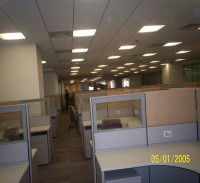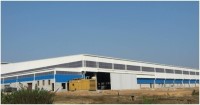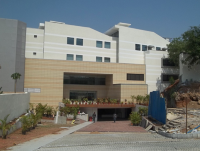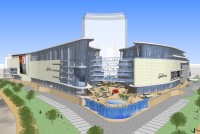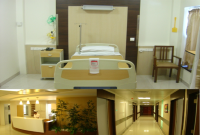Celebrating a decade of glory...and the rest is history!
Being a successful Project Management Consultancy (PMC) i.e. conceiving and managing the progress of real estate projects ensuring close co-ordination between various agencies and Clients and delivering a successful project in line with Clients objectives of time, cost and quality, is no easy victory!! It requires proper planning, analysing problems and advising solutions, optimizing resources, allocating and integrating inputs (backed with skills and manpower) to create a masterpiece. From organizations drawing upon the services of a PMC merely for gaining external advice, Project Management, in recent years has come to be seen as a discipline many successful companies adhere to, as they function as bridges for information and knowledge. To stay ahead of competition, all companies both big and small, at some point of their growth cycle, requires Project Management as it streamlines the complex processes, reduces time by bringing in cross-functional competencies.
Masters - a leading Project Management company and synonymous with names like The Fairmont, Godrej, Parsvanath, Red Fort Capital, Marriott, L&T Pheonix, Indian School of Business, Tata Realty, Forum Group, Harvard Business School, Dr. Reddy’s Laboratories, Runwal, Hiland Group, Ascendas, JP Morgan, GE Real Estate amongst many others, has evolved over the last 10 years, from a small-garage-office to having pan India presence and big ticket accounts in its kitty. As Masters celebrates its decade-long journey today on 27th December 2014, we can’t help being nostalgic and wish to take you down the memory lane, recounting the good-old days, challenges that came along and milestones we crossed along the way.
Humble beginnings:
Started back in December 2004, Masters’ inception was more like serendipity. Born out of a Project in Mumbai-The Imperial project at M.P. Mill Compound in Tardeo, was a take-it-or-leave-it decisive moment for the founder and co-founders when they were asked to construct the two tallest towers in the Country. Armed with Engineering degrees, diverse professional background and loads of passion, the team turned the challenge to an opportunity-creating history and the challenge was accepted and Masters was conceived to take on the challenge!!
From a single project to handful of projects, over the years, Masters has developed itself as a name to reckon with who companies think of creating value through Project Management Consultancy. Today the Imperial towers (residential complex) stand tall in the heart of Mumbai city as a testimony to Master’s success, being one of its flagship projects.
Over the next few years, Masters was successful in adding Real Estate Advisory, Cost Management, LEED Green Building Advisory, Architectural & Engineering Design Development divisions to its service portfolio, making it a full-service Project Management Company it is today.
Another exciting area of development for Masters has been the evolution of Development Management division. This has been a feather in the cap as it provides added value to clients by assisting them with the identification of best land use, funding and pre-conceptualizing projects.
In retrospect
Started under the leadership of Mr. Jaspreet Singh, CEO and MD of Masters, Mr. Singh’s vision behind founding Masters was to address the dire need of a professional Project Management company in the country. Mr. Singh along with his co-founders Mr. N.H. Narayanan, Mr. Sanjoy Datta and Mr. Ravinder Bassan had the undying confidence in his team, which came with the knowledge & exposure of best of international systems and standards and at the same time being able to integrate that experience with the particularities of the Indian Real Estate Industry.
Started as a small office at the project site with a handful of 10 team-members, Masters has grown into a big organization which has pan India footprints employing a whopping 200 + people as of today. The Company has its head office in Mumbai and is operating in all big cities like Delhi, Hyderabad, Bengaluru and Kolkatta while also offering its services to clients in emerging markets like Amritsar, Jaipur, Kota, Jaisalmer, Vishakhapatnam, Nagpur, Chennai, Goa, Siliguri and Jamshedpur.
In addition to investing in the right kind of talent and markets, Masters was also one of the early adopters of ISO standards. In the very first year of its inception, Masters decided to get certified to The Quality Management System ISO 9001, an International Standard, not merely to comply to market requirements but the Company wanted to embed ‘systems’ in its DNA and set clear guidelines to make sure that documented procedures and best practices (in line with an International Standard) are being followed in all its processes across all geographies. The company successfully upholds the ISO 9001:2008 certification even to date.
Recounting Milestones
Each year at Masters has been that of growth and noteworthy. Just after its inception in December 2004, in the year 2005, first Value Engineering exercise was undertaken for the Imperial, the MMC website was then launched for increasing awareness not only of Masters but also of Project Management techniques encouraging the Indian industry to adopt such professional platforms to enhance the real estate industry more rapidly by completing projects in time, cost and quality.
The Company was soon after, appointed as a PMC for DELL in Hyderabad which was their 2nd project and the formation of Thompson Cole followed with Mr. Philip James to represent Masters in Dubai and this marked the first international entry of Masters.
The year 2006 witnessed a lot of key developments like establishment of Hyderabad Regional Office on 1st April 2006 under the leadership of Mr Vishnu Prasad and Masters being appointed as a PMC for S.P. Infocity at Gurgaon, L&T SEZ Project at Hyderabad and launching of the Blog. Launch of blog signifies that the count of team had in a very short span increased manifold.
Another significant turn was bagging the Indian School of Business project (designing and executing Faculty Housing) at Hyderabad. It was an out-an-out project development consultancy where Masters designed, constructed and monitored the project providing an end-to-end service, from architectural & services design to site-related work.The Company also took up Shopper’s Stop fit-outs at Noida, Delhi and Kolkata. In just 2 years, Masters had entered most of the geographies marking a pan India presence.
In the subsequent year, i.e. 2007, Masters took up theirfirst Technical Due Diligence assignment for Ascendas Property Fund Singapore, which was undertaken at Chennai in 2007, thereby formalizing the Advisory & Technical Due Diligence Vertical under the direction of Ms. Ipsita Mahajan. The first hotel project – renovation of Ramada Caravela Resort at Goa and a Fairmont hotel project at Jaipur and then Novotel Mumbai, also commenced in 2007. 2007 also saw the establishment of Kolkata Regional Office on 10th October 2007 under the leadership of Mr Dhruba Bhattacharya. This was then followed by formally establishing the Hospitality division by Mr. Martin Fine in 2008.
In 2009, the Company started its first factory project for a Mexican client called Metalsa India Pvt. Ltd and executed the first LEED Green Building Advisory exercise in an advisory capacity to Dr. Reddy’s Laboratories, undertaken by Ms. Neha Trivedi, LEED AP. This year also witnessed the Inauguration of Corporate Office at Mumbai on 1st June and in the next month, July 2009; the Imperial project was completed and successfully handed over, which continues to be the tallest standing towers in India, even today!
The year 2010 was indeed significant and memorable as Masters had undertaken their first off-shore PMC assignment in relation to improvements at the Johannesburg Sun Hotel, Johannesburg, South Africa and also undertook their first Development Management exercise in the advisory capacity to S.P. Real Estate, undertaken by Mr. Ramy Makarem, Development Director at Masters. Having continuously cherishing the growth chart, this year saw one of the most tragic incidences; Masters lost one of its very senior key employees and one of the co-founders at Masters, Mr. N H Narayanan, Vice President. His key contributions and youthful spirit will always be remembered.
Masters then undertook its first independent Cost Management exercise in the year 2011 thereafter setting up of a separate Cost Management Division under the leadership of Mr Chandresh Dedhia and establishment of Delhi Regional Office on 10th March 2011 headed by Mr Sanjeev Sachdeva. 2011 was a crucial year also in terms of re-visiting and improvising Masters Processes by introducing an enhanced version of Procedures further streamlining the activities and offerings across the board, under the leadership of Mr Robert Perkins, Operations Director at Masters.
Successively, in the year 2012, Masters Design Studio (MDS) offering Architectural and detailed design and drawings was established at Kolkata. And subsequently, MDS was expanded to include Interior Design and MEP Services Division in the year 2013.
2014 has been a year of devising strategies for tomorrow where the company adopted modern techniques for offering services and has worked towards developing an in-house online platform for their services which would be launched in 2015. 2014 has also been a year for pondering on international expansion by looking through various proposals and the company has eventually signed MoU’s with various like-minded organizations overseas and would now be working more closely with them with an objective to develop the Indian industry further by bringing in their experience in the Indian market as well as making a strong foothold in their markets with our expertise in Project Management Consultancy.
Blocks to success
Just like any growing company, Masters too faced certain challenges in the last 10 years, while setting up. Getting like-minded people together under one roof and to remain neutral and unbiased with various stakeholders (as a PMC works on behalf of contractors and stakeholders and represents the clients) while maintaining the periphery of its core values viz-a-viz Integrity, Transparency and Honest was a tough task.
However, once that was dealt with, many companies were hit by a global economic occurrence-Recession, in the year 2008. Project Management, an activity that helps clients ease out their job, was being looked at as an overhead and hence many projects had been shelved during the economic downturn. However, the team at Masters decided to stick together and build new avenues. The Company then started looking out on various other verticals and opened separate divisions for Cost Management and Design Services and introduced Development Management which helped the Company bounce back, eventually.
Masters may have seen various hues and shades of harsh winters but over the years it has developed a strong base of trusted partners and clients and has penetrated through many influential markets that make it sturdy to withstand any challenge head-on.
Greener Pastures
Talking about the journey, it is interesting to note and make a special mention of commercial activities that the Company started that were not just lucrative but continue to add value even today. Although started with just The Imperial Towers as the only project, Masters’ presence began taking shape by bagging few key projects like DELL, L&T Pheonix and ISB in Hyderabad, Infogain, SP Infocity, Parsvanath Towers, Vivanta by Taj in Delhi-NCR, Tata Realty’s TRILIUM in Amrtisar, Godrej Prakriti in Kolkata and Novotel and Saifee Burhani’s Upliftment Project in Mumbai. Many years later, Masters has been successful in carving a niche for itself in the Indian market and operates out of full-service offices in Mumbai, Kolkata, New Delhi and Hyderabad. Each of the geographies while may have brought a few challenges initially, but they are now being explored for both small and big assignments across various services as end-to-end solutions.
 As
we complete 10 magnificent years at Masters, it gives me immense
pleasure and joy to extend a vote of thanks to all those who have been
instrumental in enabling us to achieve this feat and have contributed in
one way or the other in making the D Day of our 10th year anniversary worth such a grandeur!!
As
we complete 10 magnificent years at Masters, it gives me immense
pleasure and joy to extend a vote of thanks to all those who have been
instrumental in enabling us to achieve this feat and have contributed in
one way or the other in making the D Day of our 10th year anniversary worth such a grandeur!!

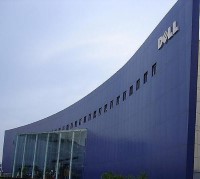
 state of art IT/ITES buildings each with an average BUA of 250,000 Sq. ft. with a Total Project Value of 406 Cr.
state of art IT/ITES buildings each with an average BUA of 250,000 Sq. ft. with a Total Project Value of 406 Cr.
